Overlooked Wonders: UNESCO Sites Off the Beaten Path
15 January 2025
When most people think of UNESCO World Heritage Sites, the first places that come to mind probably include the likes of the Pyramids of Giza, the Great Wall of China, or the Roman Colosseum. And while these are undoubtedly spectacular, they often steal the spotlight from equally enchanting sites that, for some reason, fly under the radar.
We’re not going to talk about the ones you've seen plastered on Instagram. Nope! Instead, we’re delving into the world’s lesser-known UNESCO gems—those hidden treasures that, while officially recognized for their cultural, historical, or natural significance, still manage to escape the masses. If you're the sort of traveler who loves going off the beaten path, then stick around. This is your guide to some of the world's most underrated UNESCO sites—places with fewer crowds but just as much, if not more, allure.

1. Rock-Hewn Churches of Lalibela, Ethiopia
Location: Lalibela, EthiopiaDesignation: 1978
You’ve probably heard of Petra, Jordan—the city carved out of red sandstone cliffs. But did you know that Ethiopia boasts its own stunning rock-hewn marvels? Lalibela is home to eleven monolithic churches that were chiseled straight out of the mountainside, and they are mind-blowingly intricate.
These churches were constructed in the 12th century, and what makes them even more impressive is that they’re still an active place of worship. Visitors can wander through labyrinthine tunnels and admire the detailed rock carvings, all while feeling the spiritual energy that permeates the air. What's even cooler? Unlike Petra, it’s not swarming with tourists. It feels raw, local, and untouched.
Why Visit?
Despite its grandeur, Lalibela remains overlooked by most travelers. You’ll have the chance to experience ancient Ethiopia's rich spiritual and architectural traditions without the crowds. Plus, imagine how cool it’ll be to tell your friends you visited a place that rivals Petra in sheer ingenuity!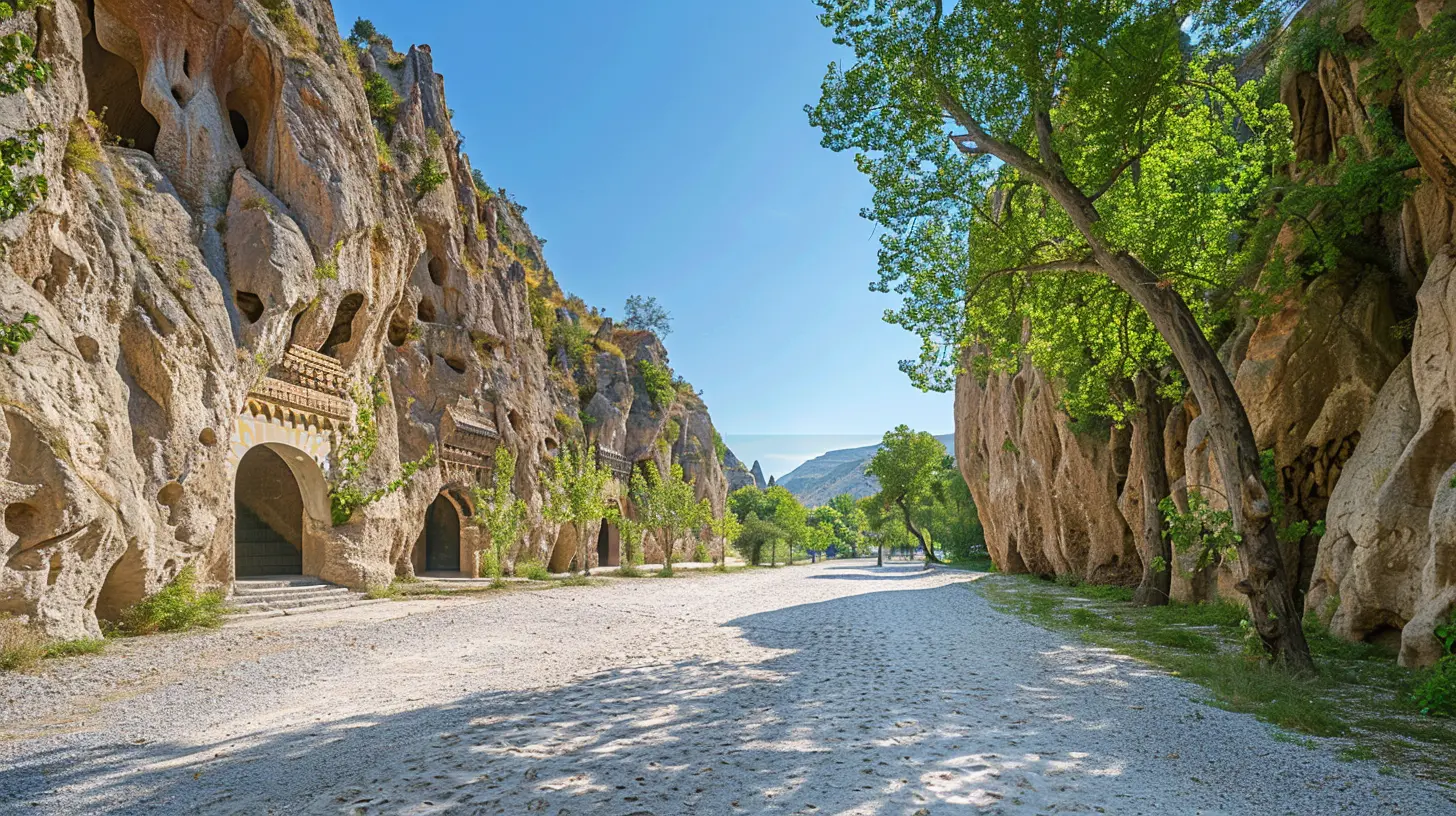
2. Vatnajökull National Park, Iceland
Location: Southeast IcelandDesignation: 2019
Iceland is no stranger to natural beauty, and everyone seems to know about its Blue Lagoon or the Golden Circle. But while those spots are Instagram darlings, the Vatnajökull National Park remains a hidden wonder nestled in the Icelandic wilderness. Spanning over 14% of the country, it's the largest national park in Europe, showcasing an array of glaciers, volcanic landscapes, waterfalls, and even geothermal areas.
This UNESCO site is known for its overwhelming raw beauty. Vast ice caps stretch as far as the eye can see, punctuated by smoldering volcanoes. And if that’s not enough, the park is also home to Europe’s largest glacier!
Why Visit?
It’s less crowded compared to other Icelandic attractions, plus it's pure Iceland in its most untamed form. Vatnajökull offers an adventure playground for hikers, photographers, and nature lovers alike. With fewer people to jostle for space, you’re free to take in the spectacular scenery in peace.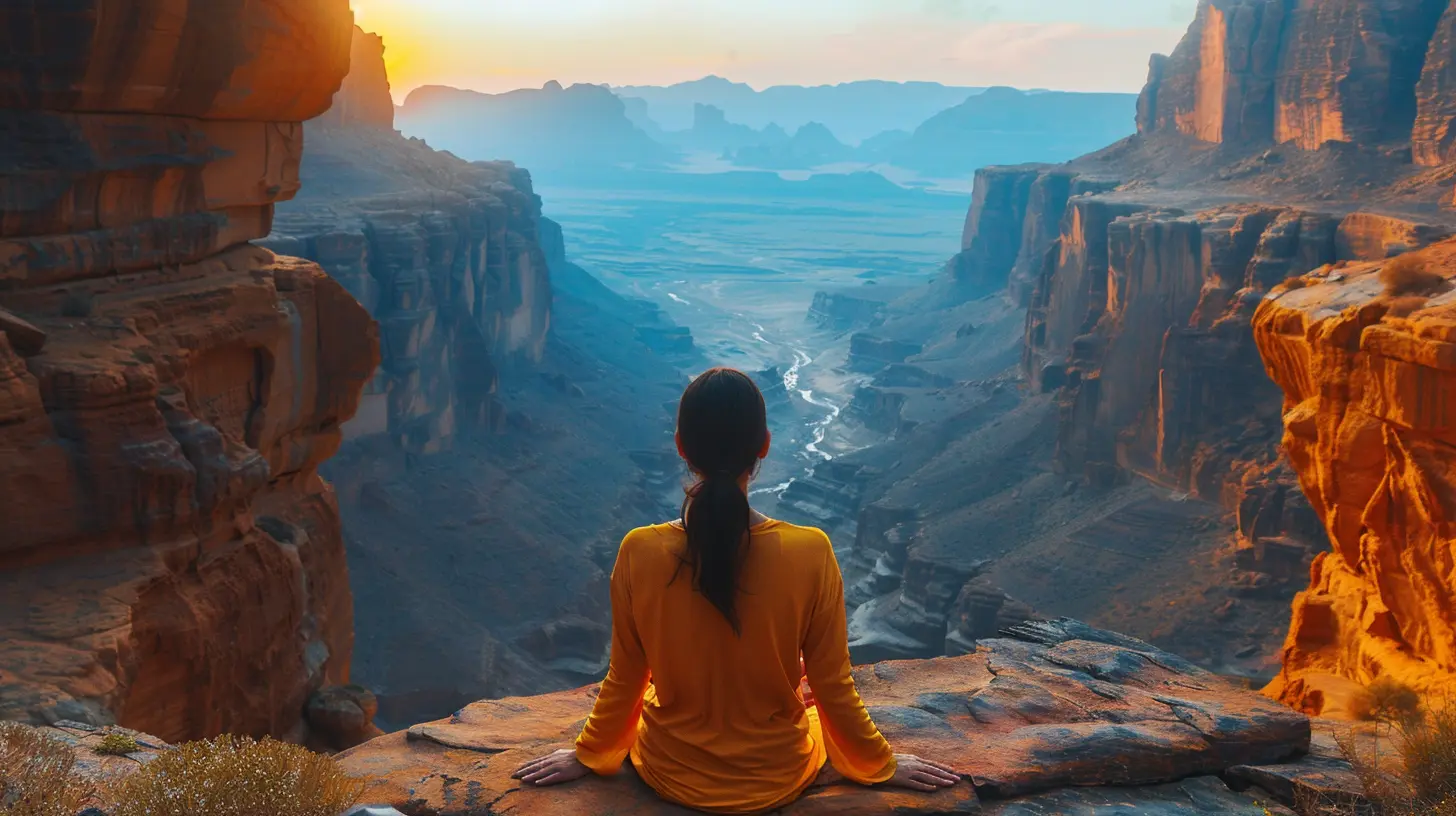
3. Rapa Nui National Park (Easter Island), Chile
Location: Easter Island, ChileDesignation: 1995
The colossal moai statues of Easter Island are a common sight in history books but somehow remain off the typical tourist radar. Located in the middle of the Pacific Ocean, more than 2,000 miles off the Chilean coast, this is one of the most remote inhabited islands on Earth.
These massive stone figures have mystified explorers and historians for centuries because, let's face it—how did ancient civilizations create and move such gigantic structures without modern technology? The island is steeped in mystery, offering an eerie atmosphere that lingers as you wander through the grassy plains dotted with giant, solemn faces gazing out at sea.
Why Visit?
Its remote location means you’ll have plenty of time to take in the island’s haunting beauty and ancient history without being elbow-to-elbow with fellow tourists. And let's be real—how many people do you know who’ve ventured to Easter Island?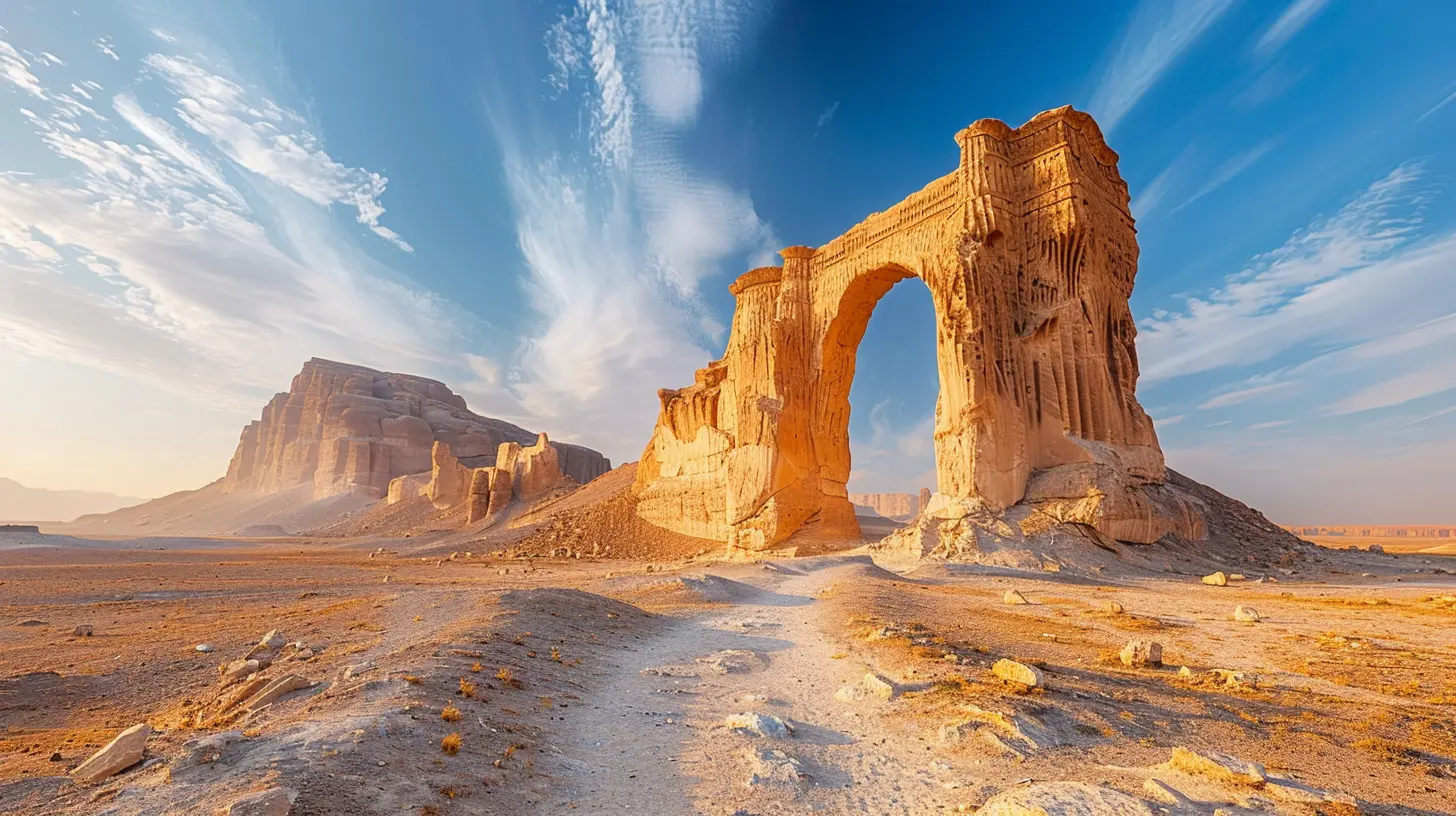
4. Al Qal’a of Beni Hammad, Algeria
Location: Near M'sila, AlgeriaDesignation: 1980
Ever heard of Al Qal’a of Beni Hammad? Probably not. But that’s why it’s such a hidden gem. This ancient city, once the capital of the Hammadid dynasty back in the 11th century, is nestled amidst the Algerian mountains. The city is partially in ruins now, but you can still explore massive, awe-inspiring remnants like the fortress walls, tower remains, and an enormous mosque that was likely one of the largest in the region at the time.
Standing at the gates of Al Qal’a, you can almost hear the echoes of its former glory as a bustling, thriving metropolis. Today, it's an isolated archaeological site, making it perfect for those intrigued by history, but tired of crowded sites.
Why Visit?
This isn’t your typical tourist trap, which means you’ll experience the ruins in a nearly solitary setting. Plus, there's something magical about standing somewhere that feels almost forgotten by the rest of the world.5. Joya de Cerén, El Salvador
Location: La Libertad, El SalvadorDesignation: 1993
If I told you there was a "Pompeii of the Americas," would you believe me? Well, that’s exactly what Joya de Cerén is often referred to. Buried under volcanic ash around 600 AD, this ancient Mayan farming village was preserved in almost pristine condition, offering an unprecedented glimpse into the daily life of its inhabitants.
Unlike the majestic ruins of Tikal or Chichen Itza, this site is a more personal, intimate look into how the common Mayan people lived—complete with kitchens, storerooms, and even their crops still in situ. The level of preservation here is uncanny.
Why Visit?
For those fascinated by archaeology but put off by the touristy throngs at other Mayan sites, Joya de Cerén provides a quieter, more reflective experience. You won’t be climbing temples here, but you’ll be walking through the past in a way that feels raw and real.
6. Białowieża Forest, Belarus/Poland
Location: Border between Belarus and PolandDesignation: 1979
If you’re into nature, then Białowieża Forest is your dream come true. This massive primeval forest straddles the border of Belarus and Poland and is one of the last and largest remaining parts of the immense forest that once spread across the European Plain. Plus, it’s home to the European bison, the continent’s heaviest land animal, which was once on the brink of extinction.
Outdoor enthusiasts will be in heaven here, with chances to spot wildlife, hike winding trails under centuries-old trees, or just lose themselves in the serene beauty of an ancient forest that hasn’t changed much in millennia.
Why Visit?
Because who doesn’t love the idea of walking through a forest that feels like it belongs in a fairy tale? It's an untouched wilderness where you can reconnect with nature, uncluttered by modern-day human interference.7. Hatra, Iraq
Location: Northern IraqDesignation: 1985 (But sadly added to the list of World Heritage in Danger in 2015)
Hatra is an ancient city that boasts a fusion of Greco-Roman and Eastern architecture, sitting smack dab in modern-day northern Iraq. It was once a major religious and trading center of the Parthian Empire, known for its massive fortress walls that resisted Roman conquest.
The site’s monumental temples and towering columns will make you feel as though you’ve been transported to a different era. While it’s been hit hard by conflict in recent years, efforts are underway to restore and protect this awe-inspiring site that feels like something straight out of an Indiana Jones movie.
Why Visit?
For the history buffs, Hatra is a lauded site that resonates with ancient grandeur. Its resilience to conflict and time only adds to its allure. And while it may be risky to visit now, it should definitely be on your radar for future adventures.
8. Simien Mountains National Park, Ethiopia
Location: Northern EthiopiaDesignation: 1978
The Simien Mountains are a dramatic range of jagged peaks and deep valleys that rise up from northern Ethiopia. Known for their breathtaking views and diverse wildlife—including the endangered Ethiopian wolf—this UNESCO site is often unfairly overshadowed by more famous landmarks on the African continent, like Mount Kilimanjaro or Victoria Falls.
Hiking here feels like you’ve journeyed to another planet. With its towering cliffs and plunging valleys, the landscape has an almost otherworldly quality. Plus, you might just spot some rare wildlife, such as the adorable Gelada baboons.
Why Visit?
Fewer crowds, more nature! You’ll get epic landscapes without the usual throngs of tourists that frequent more well-known African natural wonders like the Serengeti or Table Mountain.Conclusion: Time to Blaze Your Own Trail
So, there you have it—some incredible but overlooked UNESCO World Heritage sites that deserve your attention. While the famous ones are great, stepping off the well-trodden path can lead you to places where history, nature, and culture seem to meet in magical ways. Whether it's visiting ancient churches carved into mountainsides or wandering through the remains of a forgotten civilization, these hidden gems offer something unique—and most importantly, fewer crowds.So, what are you waiting for? Grab your backpack, do some research, and start planning a trip that takes you off the beaten path!
all images in this post were generated using AI tools
Category:
World Heritage SitesAuthor:

Reed McFadden
Discussion
rate this article
13 comments
Bryson Wells
Ah yes, because who needs crowds when you can have solitude?
February 10, 2025 at 4:16 PM

Reed McFadden
Exactly! Solitude allows for a deeper connection with these hidden gems.
Lilith Wade
This article brilliantly highlights the charm of lesser-known UNESCO sites, urging travelers to explore beyond the crowded landmarks. It challenges conventional tourism by showcasing unique cultural narratives, ultimately enriching our understanding of global heritage and its diverse expressions.
February 3, 2025 at 5:23 PM

Reed McFadden
Thank you for your thoughtful comment! I'm glad you enjoyed the article and appreciate the importance of exploring these unique UNESCO sites.
Angie Ford
Why follow the crowds when you can wander into the world’s best-kept secrets? Pack your bags, grab your sense of adventure, and prepare for some serious bragging rights—because nothing says ‘I’m cultured’ quite like discovering a UNESCO site that your friends can’t pronounce!
February 1, 2025 at 4:22 AM

Reed McFadden
Absolutely! Exploring hidden UNESCO sites not only enriches your travel experience but also offers unique stories to share. It's all about the adventure and the discoveries that await off the well-trodden path!
Faye Bell
Rediscovering hidden heritage gems.
January 30, 2025 at 5:54 AM

Reed McFadden
Thank you! It’s exciting to shed light on these hidden treasures and celebrate our diverse cultural heritage.
Blake Ruiz
Great discoveries await here!
January 27, 2025 at 3:31 AM

Reed McFadden
Thank you! I hope you find inspiration to explore these hidden gems!
Harley Fuller
This article beautifully highlights the hidden gems of UNESCO sites that often go unnoticed. Exploring these off-the-beaten-path destinations not only enriches our travel experiences but also helps preserve unique cultures and histories. It's a reminder that adventure awaits in the most unexpected places!
January 23, 2025 at 4:19 PM

Reed McFadden
Thank you for your thoughtful comment! I'm glad you found the article inspiring and appreciate the importance of exploring these unique sites. Happy travels!
Luella King
What a delightful read! Exploring these overlooked UNESCO gems is like finding hidden treasures waiting to be discovered. Adventure awaits, so pack your bags and step off the beaten path! Who knows what wonders you’ll uncover? Happy travels and happy exploring! 🌍✨
January 22, 2025 at 3:46 PM

Reed McFadden
Thank you! I'm glad you enjoyed it. There’s so much beauty waiting to be discovered beyond the usual spots. Happy exploring! 🌍✨
Sage Harris
Thank you for highlighting these hidden gems! Exploring lesser-known UNESCO sites truly enriches our travel experiences, fostering deeper connections with diverse cultures and breathtaking landscapes.
January 22, 2025 at 3:25 AM

Reed McFadden
Thank you for your thoughtful comment! I'm glad you appreciate the beauty and richness of these lesser-known UNESCO sites. Happy exploring!
Thistle Vaughn
What a fantastic exploration of hidden gems! Your insights on these often-overlooked UNESCO sites inspire wanderlust and offer fresh perspectives on travel. It's a reminder that adventure can be found in the most unexpected places. Thank you for sharing these beautiful discoveries!
January 21, 2025 at 6:03 AM

Reed McFadden
Thank you so much! I'm thrilled you enjoyed the exploration of these hidden gems. Adventure truly awaits in the most unexpected places!
Jaxon McGinnis
This article brilliantly highlights the charm of lesser-known UNESCO sites, offering a refreshing perspective on global heritage. By exploring these overlooked wonders, travelers can experience authentic cultural interactions and breathtaking landscapes, while also contributing to sustainable tourism. A must-read for those seeking unique adventures beyond popular destinations!
January 20, 2025 at 5:52 PM

Reed McFadden
Thank you for your kind words! I'm glad you found the article enlightening and inspiring for unique travel experiences. Happy exploring!
Martha Price
Discovering UNESCO sites off the beaten path invites us to embrace the beauty of the world’s hidden gems. Each location tells a unique story, waiting for adventurous souls to explore. Let curiosity lead the way and experience the wonder that’s often overlooked. Happy travels!
January 18, 2025 at 4:34 PM

Reed McFadden
Thank you! I completely agree—exploring these hidden UNESCO gems truly reveals the world's diverse beauty and rich stories. Happy exploring!
Seraphine Diaz
Thank you for highlighting these hidden treasures! It's inspiring to discover UNESCO sites that often remain under the radar. Each of these locations holds unique stories and cultural significance, offering travelers a chance to connect with the world in meaningful ways. Let's celebrate and protect these overlooked wonders together!
January 17, 2025 at 5:04 PM

Reed McFadden
Thank you for your thoughtful response! I completely agree—these hidden treasures deserve our attention and appreciation. Let's keep exploring and sharing their unique stories!
Nyxaris Bishop
Discover the hidden gems of our world! These overlooked UNESCO sites promise breathtaking beauty and rich history. Adventure awaits—step off the beaten path and explore!
January 17, 2025 at 6:03 AM

Reed McFadden
Thank you! I'm excited to highlight these hidden gems and inspire others to explore the lesser-known UNESCO sites. Adventure truly awaits!
MORE POSTS

Why Group Travel is More Fun Than You Think
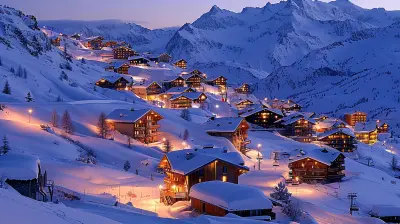
Winter Wonderland: The Most Luxurious Ski Resorts Around the Globe

Everything You Should Know Before Booking an All-Inclusive Resort

Under-the-Radar Family-Friendly Experiences in Urban Cities
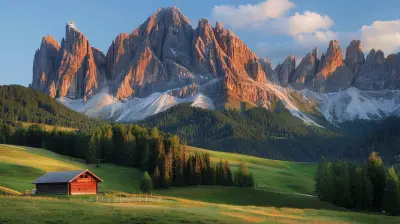
Escape the Crowds: Remote Mountains for Ultimate Privacy

World-Class Design: Luxurious Hotels That Define Architecture

Sustainable Island Hopping: Eco-Friendly Ways to Explore the Tropics

Safety Precautions When Using Cash and Credit Cards Abroad

Bespoke Experiences: How to Design Your Dream Luxury Vacation